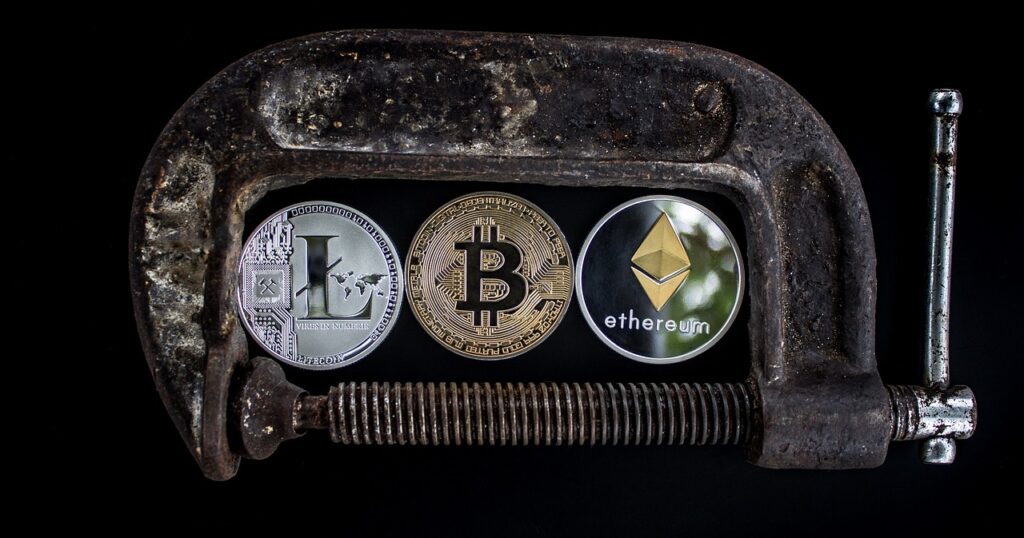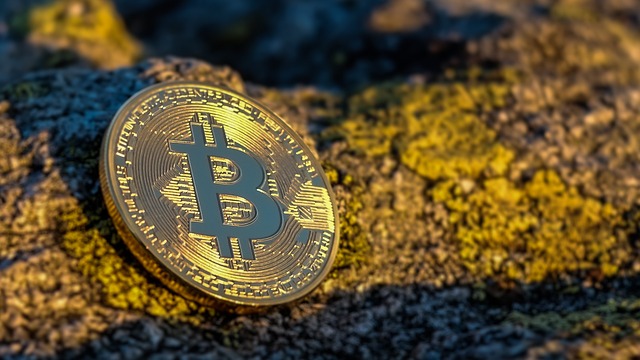Decentralized Finance Tech Trends: Forecasting Developments in [Year]
Decentralized Finance Tech Trends: Forecasting Developments in [Year]

Unveiling the Future of Financial Systems: Analyzing the Growing Influence of Decentralized Finance
Decentralized finance, commonly known as DeFi, is rapidly gaining traction and reshaping the future of financial systems. With its emphasis on transparency, security, and inclusivity, DeFi has unleashed a wave of innovation that promises to democratize access to financial services. By leveraging blockchain technology, DeFi eliminates the need for intermediaries, such as banks and traditional financial institutions, allowing individuals to directly engage in peer-to-peer transactions and manage their assets with greater control and ownership.
One of the key factors driving the growing influence of DeFi is the ability to earn attractive yields through lending and borrowing protocols. With DeFi lending platforms, users can lend their idle assets and earn interest rates that surpass the returns offered by traditional savings accounts. Simultaneously, borrowers can access capital without the need for credit checks or extensive paperwork, creating a more inclusive financial landscape. These lending and borrowing protocols, built on smart contract technology, automate the lending process, ensuring that interest rates and collateral requirements are determined in a transparent and automated manner. This combination of efficiency, accessibility, and higher returns has attracted a growing number of users to DeFi platforms, further fueling its influence in the financial sector.
Exploring the Evolution of Blockchain Technology in the Financial Sector
Blockchain technology has revolutionized the financial sector, offering new possibilities and transforming traditional systems. One of the key advancements is the concept of distributed ledgers, which allows for the secure and transparent recording of financial transactions. This technology eliminates the need for intermediaries, reducing costs and increasing efficiency in processes such as remittances, payments, and settlements. With blockchain, transactions can be processed in a matter of minutes, rather than days, enabling faster and more streamlined financial operations.
Furthermore, the evolution of blockchain technology has facilitated the development of smart contracts. These self-executing contracts eliminate the need for intermediaries and simplify complex financial agreements. Smart contracts are programmed to automatically execute actions based on predefined rules, ensuring transparency and reducing the risk of fraud. By leveraging blockchain’s immutable nature and decentralized architecture, smart contracts provide a trustworthy and efficient way to engage in financial agreements. This evolution has the potential to revolutionize industries such as insurance, supply chain, and real estate, offering immense opportunities for cost savings and enhanced security.
• Distributed ledgers allow for secure and transparent recording of financial transactions
• Eliminates the need for intermediaries, reducing costs and increasing efficiency
• Transactions can be processed in minutes, rather than days
• Facilitated the development of smart contracts
• Self-executing contracts that simplify complex financial agreements
• Programmed to automatically execute actions based on predefined rules
• Ensures transparency and reduces the risk of fraud
• Revolutionizes industries such as insurance, supply chain, and real estate
• Offers opportunities for cost savings and enhanced security
The Rise of Decentralized Applications (DApps) in the Finance Industry
With the rapid growth of decentralized finance (DeFi), decentralized applications (DApps) have emerged as a key player in the finance industry. DApps are essentially applications that run on blockchain networks, offering users increased transparency, security, and autonomy. Unlike traditional financial apps, which are typically centralized and require intermediaries, DApps leverage smart contracts and blockchain technology to provide users with a peer-to-peer financial experience.
One of the main advantages of DApps in the finance industry is their ability to eliminate the need for intermediaries and intermediation costs. By removing the middleman, DApps enable users to interact directly with the blockchain, facilitating faster and more efficient transactions. Additionally, DApps offer greater privacy as users have control over their own data, reducing the risk of data breaches and unauthorized access. As a result, individuals and businesses can enjoy a more secure and personalized financial experience, free from the constraints imposed by centralized systems.
Smart Contracts: Revolutionizing Traditional Financial Agreements
Smart contracts have emerged as a game-changer in the world of traditional financial agreements. These self-executing contracts are designed to automatically enforce the terms and conditions agreed upon by the involved parties, without the need for intermediaries. This technology leverages blockchain, ensuring transparency, security, and immutability.
One of the biggest advantages of smart contracts is their efficiency. They eliminate the need for manual processing and paperwork, saving time and reducing human error. With smart contracts, financial agreements can be executed seamlessly and with precision. Additionally, the automation offered by smart contracts reduces the need for intermediaries such as lawyers or notaries, resulting in significant cost savings. It’s no wonder that this technology has gained traction in industries beyond finance, including supply chain management and real estate. The potential for smart contracts to revolutionize traditional financial agreements is immense, and we are just scratching the surface of its possibilities.
The Role of Cryptocurrencies in Shaping Decentralized Finance
Cryptocurrencies have emerged as a significant driving force behind the development of decentralized finance. These digital currencies, such as Bitcoin and Ethereum, have paved the way for a new financial ecosystem that operates outside the control of traditional institutions. With their decentralized nature, cryptocurrencies enable peer-to-peer transactions, eliminating the need for intermediaries like banks. This not only reduces costs but also increases accessibility, allowing individuals from all corners of the globe to participate in financial activities. Moreover, cryptocurrencies offer a level of transparency and security through their utilization of blockchain technology, making transactions immutable and resistant to fraud. As a result, these digital assets have become an integral part of the decentralized finance landscape, facilitating seamless and efficient financial interactions for users worldwide.
The influence of cryptocurrencies goes beyond mere transactional capabilities. These digital assets have also introduced innovative mechanisms for fundraising and investment. Through initial coin offerings (ICOs) and token sales, cryptocurrency networks have enabled projects and startups to access capital directly from investors without going through traditional financing channels.

Understanding the Concept of Decentralized Exchanges and their Potential Impact
Decentralized exchanges (DEXs) are gaining popularity and creating waves in the world of finance. Unlike traditional exchanges, which rely on a centralized authority to facilitate transactions, DEXs operate on decentralized networks, allowing users to trade directly with one another. This innovative concept has the potential to revolutionize the way we buy and sell assets, as it eliminates the need for intermediaries, reduces transaction costs, and provides greater transparency.
One of the key advantages of decentralized exchanges is their ability to enhance privacy and security. By removing the need for a third party to hold and manage funds, DEXs put users in control of their own assets. This means that users are not required to disclose personal information, such as their identity or banking details, which reduces the risk of identity theft and fraud. Additionally, the use of blockchain technology ensures that transactions are immutable and traceable, providing a level of transparency that is unmatched by traditional financial systems.
With the potential to disrupt the traditional financial landscape, decentralized exchanges are poised to make a significant impact on the way we conduct financial transactions. As more users recognize the benefits of DEXs, we can expect to see increased adoption and further innovation in this space. However, it is important to note that there are still challenges that need to be addressed, such as liquidity and scalability. Nevertheless, the concept of decentralized exchanges has already begun to reshape the financial industry, and its potential impact is only beginning to be realized.
DeFi Lending and Borrowing: A New Era for Access to Capital
Decentralized Finance (DeFi) lending and borrowing have emerged as game-changers in the financial industry, providing individuals and businesses with an entirely new way to access capital. This innovative approach utilizes blockchain technology to create an open and transparent financial ecosystem that is accessible to anyone with an internet connection.
One of the key advantages of DeFi lending and borrowing is its inclusivity. Traditional financial systems often require individuals to go through lengthy application processes, meet strict eligibility criteria, and provide collateral to secure a loan. In contrast, DeFi platforms enable borrowers to access capital without the need for intermediaries or extensive documentation. This opens up opportunities for individuals who may not have had access to traditional banking services or struggled to meet the stringent requirements. Furthermore, DeFi lending and borrowing platforms also allow individuals to lend their excess capital and earn interest, providing an avenue for passive income generation.
NFTs and DeFi: Exploring the Intersection of Digital Art and Decentralized Finance
The world of digital art has found a new ally in decentralized finance (DeFi) through the use of non-fungible tokens (NFTs). NFTs represent a unique form of digital asset ownership, immutably recorded on a blockchain. This innovation has opened up exciting possibilities for artists, collectors, and enthusiasts alike. With NFTs, artists can tokenize their creations, ensuring provenance and authenticity while allowing for new monetization opportunities. Collectors, on the other hand, can securely and transparently buy, sell, and trade digital art, eliminating the need for intermediaries and showcasing a new level of ownership in the digital realm. The intersection of NFTs and DeFi holds immense potential in revolutionizing the art market and creating an ecosystem where artists can thrive, collectors can curate their digital collections, and investors can participate in a rapidly growing market.
In addition to providing a unique avenue for artists and collectors, the integration of NFTs and DeFi brings novel financial opportunities. Through decentralized finance protocols, individuals can utilize their NFTs as collateral, enabling borrowing and lending using digital assets as security. This opens up a whole new realm of possibilities for creators and collectors to access capital. Furthermore, the transparency and programmability of smart contracts in DeFi enable innovative revenue-sharing and royalty mechanisms, ensuring that artists are fairly compensated for the ongoing use of their art. With the power of NFTs and DeFi combined, a decentralized financial system can reshape the art world, empowering creators economically and creating a more inclusive and accessible ecosystem for everyone involved.
The Challenges and Opportunities of Regulatory Frameworks for Decentralized Finance
The world of decentralized finance (DeFi) presents both exciting opportunities and unique challenges when it comes to regulatory frameworks. As the DeFi space continues to grow and evolve, regulators around the globe are grappling with how to strike a balance between protecting investors and fostering innovation. One of the main challenges lies in the decentralized nature of these financial systems, which often operate without intermediaries or central authorities. This creates a significant hurdle in terms of traditional regulatory oversight and enforcement.
However, amidst the challenges, there are also tremendous opportunities for regulators to adapt and embrace the potential benefits of DeFi. By developing clear and comprehensive frameworks, regulators can provide a level of protection to participants in these decentralized systems, ensuring that they operate in a fair and transparent manner. Moreover, effective regulation has the potential to enhance consumer confidence and attract more traditional financial institutions to engage with DeFi, stimulating further growth and adoption.

Forecasting the Future of Decentralized Finance: Predictions for [Year] and Beyond
The future of decentralized finance (DeFi) holds immense potential for transforming the traditional financial landscape. As we look ahead to the coming years, there are several predictions that can be made about the direction this emerging industry is likely to take.
Firstly, we can expect to see a continued surge in the adoption and usage of decentralized applications (DApps) in the finance sector. With their ability to provide transparent, secure, and efficient financial services, DApps are poised to revolutionize the way we interact with money. As more individuals and institutions recognize the benefits of decentralized technologies, we can anticipate a proliferation of innovative DApps catering to various financial needs.
Additionally, the rise of non-fungible tokens (NFTs) is set to intersect with the world of DeFi, creating new opportunities for the digital art industry. NFTs, which represent unique assets on the blockchain, have already gained significant traction in the art world. Looking ahead, we can anticipate the integration of NFTs into DeFi protocols, enabling artists and collectors to leverage decentralized platforms for buying, selling, and trading digital art in a secure and transparent manner.
These predictions, however, are just the tip of the iceberg when it comes to the future of decentralized finance. As technology continues to evolve and more individuals embrace decentralized systems, we can expect a paradigm shift in the way financial systems operate. While challenges and regulatory hurdles may arise along the way, the potential benefits of DeFi are too great to be ignored. With each passing year, decentralized finance is poised to reshape traditional financial structures, empowering individuals and enabling greater financial inclusivity. The future is bright for DeFi, and it’s an exciting time to be a part of this transformative journey.
What is decentralized finance?
Decentralized finance, or DeFi, refers to a financial system that operates on blockchain technology and eliminates the need for intermediaries like banks. It allows for peer-to-peer transactions and offers various financial services in a decentralized manner.
How is blockchain technology evolving in the financial sector?
Blockchain technology is revolutionizing the financial sector by providing transparent and secure transactions. It enables faster and more efficient cross-border payments, reduces fraud, and improves the overall accessibility of financial services.
What are decentralized applications (DApps) in the finance industry?
Decentralized applications, or DApps, are applications that run on a blockchain network. In the finance industry, DApps provide various financial services, such as lending, borrowing, trading, and asset management, without the need for intermediaries.
How do smart contracts revolutionize traditional financial agreements?
Smart contracts are self-executing contracts with the terms of the agreement directly written into code. They automatically execute transactions when predefined conditions are met, eliminating the need for intermediaries and ensuring trust and efficiency in financial agreements.
What role do cryptocurrencies play in shaping decentralized finance?
Cryptocurrencies serve as the native currencies within decentralized finance systems. They enable seamless transactions, incentivize network participants, and provide opportunities for investment and speculation within the decentralized finance ecosystem.
What are decentralized exchanges and how do they impact the financial industry?
Decentralized exchanges, or DEXs, are platforms that facilitate peer-to-peer trading of cryptocurrencies without the need for intermediaries. They offer increased security, privacy, and control over assets, revolutionizing the way people trade and invest in the financial industry.
How does DeFi lending and borrowing change access to capital?
DeFi lending and borrowing platforms allow individuals and businesses to access capital without involving traditional financial institutions. It opens up opportunities for borrowers who may not meet the criteria of traditional lenders, promoting financial inclusivity.
What is the intersection of NFTs and DeFi?
The intersection of non-fungible tokens (NFTs) and DeFi explores the integration of digital art and decentralized finance. NFTs provide unique ownership of digital assets, and DeFi platforms enable the trading, borrowing, and lending of these assets, creating new possibilities for artists and investors.
What are the challenges and opportunities of regulatory frameworks for decentralized finance?
The regulatory frameworks for decentralized finance are still evolving. While regulations can provide protection and legitimacy to the ecosystem, they must balance innovation and consumer safety. Striking the right balance can unlock the full potential of decentralized finance.
What are the predictions for the future of decentralized finance?
The future of decentralized finance holds immense potential. It is expected to witness further growth, adoption, and innovation.

Todays Featured Product:
Buy, exchange and grow your crypto securely with a Ledger hardware wallet, combined with the Ledger Live app. It’s never been easier to keep your crypto safe and accessible. Buy direct from Ledger.com and get todays Special Offers Here.




